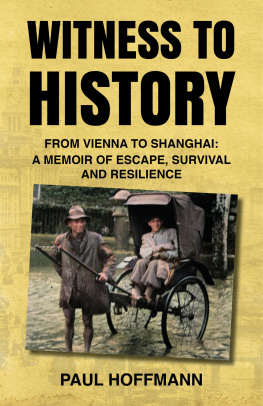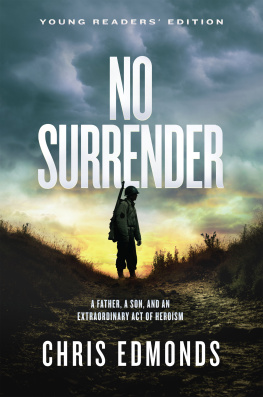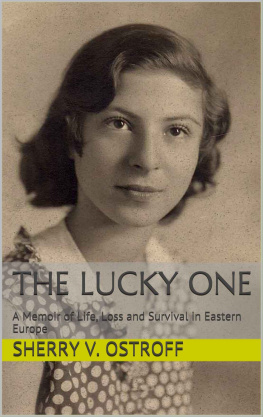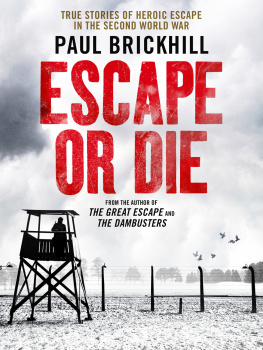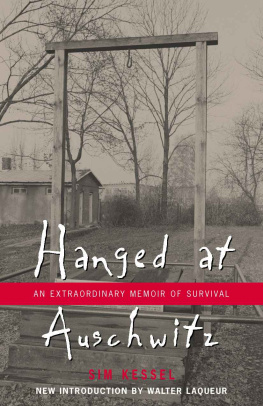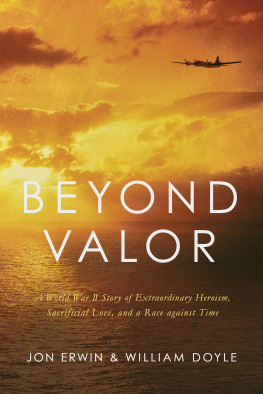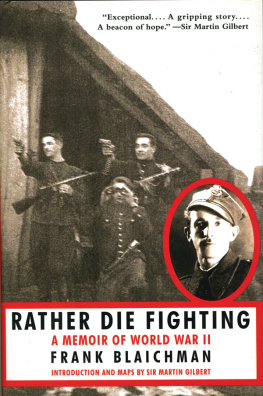Tuesday, May 8, 1945: I woke that day a free man, happy beyond belief to be home in America, home in a small house near railroad tracks at the back end of a small city, safe in a tiny, old building that still had no running water or bathroom, but to me was paradise. Not quite a year before, I had jumped from a plane in the wee hours of the morning and landed in the middle of the biggest war mankind has ever known. Id crashed off target but gotten on with things, helping securing the bridgehead into France.
Many things had happened after that. Horrible things. But in the end, Id survived.
Now, this morning, May 8, someone was shouting outsidea newsboy hawking papers.
War is over! he yelled. VE Day.
VE Day.
Victory in Europe.
He was wrong. World War II wasnt quite over. We were still fighting the Japanese in the Pacific. But the mistake was understandable. He was excited, and we were all excited. The Germans had surrendered. Adolf Hitler was dead. The bigger part of the conflict was finished. The evil the Nazis had unleashedevil Id seen and experiencedhad been vanquished. It cost trillions of dollars and countless lives, but it had to be done. Whatever it took, it had to be done.
I stepped outside our little house. Church bells were ringing. Cars beeped. Children and grown men and women played and wept in the streets.
Id known the war would end for weeks, but still I felt some surprise. Over. It was really over.
Was it? What had happened seemed like a nightmare that had no ending.
I started walking across town, toward my fiances home. If I was going to celebrate, it had to be with her.
When wed met, I was just a teenage child. Now I was a man, a man whod been to war.
A man who had fought in the hedgerows of France, been shot by a tank, taken prisoner, and interred in a camp where the intent was to work you to death.
A man who had seen the very worst things human beings could do to each other. Who had stood next to the fence of a Nazi death camp and watched the bodies of gassed Jews as they were piled up, then carted away to be burned.
Surviving the war meant living on sawdust and beet juice for months, shivering in a thin blanket in weather so cold your sweat froze. It took beatings so harsh you thought your skull would cave in.
It took choosing almost certain quick death over almost certain slow death.
It took desperate acts behind enemy lines.
I had learned many things in the year and a half since Id joined the Army. I learned how to fall out of planes and land without breaking my neck or wrenching my knee. I learned how to blow up bridges, and detect booby traps and mines.
I learned how to navigate in the dark, using stars and dead reckoning. I learned how to survive behind enemy lines, where everyone wants you dead, or worse.
I learned how to kill, and how not to look too deeply into the eyes of the man you shot, for fear of seeing your reflection.
I learned how to become a savage.
I learned how very dark a mans soul can become when he wills himself to survive.
Desperation, hunger, vengeance, and most of all my training as a paratrooper with the U.S. Armys 82nd Airborne made me a fierce warriorbut a reluctant one. Under other circumstances, maybe, I could have been friends with some of the people I had to shoot. But Id been in a place where I had no friends, and where everyone I met carried my death sentence, no matter how kind their glance seemed.
I tried putting all of that out of my mind as I walked. Today was not a day for deep reflection. Today was a day to celebrate.
VE Day. The war in Europe was over.
CLINTON, IOWA
I am ninety-five years old as I am writing this. There are blanks in my memory now: things I want to remember but cant, names especially. Things I never knew to remember.
There are also things Id rather forget, but cant.
I will lay it all out here, to the best of my ability, blanks and all.
* * *
My childhood was nothing special, for the Depression and middle America. We were poor, and a large family. Id guess millions of Americans could say about the same thing.
I was born and have lived in Clinton, Iowa, my whole life.
Most people when they think of Iowa imagine vast rows of corn in fields that go on forever, rising from thick clods of black dirt and aiming at an endless sky. That is Iowa, but were also on the border of the Mississippi, and have our share of hills and streams, forests and swamps. In the eastern half of the state, the river remains an essential fact of life.
Lumber was especially important in Clintons story; they called the city the Lumber Capital of the World. The wood would be sent down the Mississippi and collected here in town. Large rafts of trees were tied together and pushed by boats to the sawmills and woodworking factories. Anything you could think of that could be made of wood was made in one of those factories: furniture, fancy cabinets, doors, window frames, toys. It was good business. I was told there were more millionaires in Clinton than any other small town in America. South Clinton was said to be built on sawdust, the pilings and dredging of the river mixed with the factory leftovers.
By my time, the sawmills had mostly disappeared, but there were still factories around making things from wood. The shops kept a good part of the city employed.
Clinton was a lot like the rest of America, certainly middle America and the Midwest when I was born in 1924November 4, 1924, to be exact. There were cars, buses, and trucks, but people would walk a mile or two or four and not think too much of it. Not everyone had indoor plumbingmy parents were poor, admittedly, but they didnt get running water until after World War II. I can still remember emptying the chamber pot. We learned what was going on in the world and down the street from newspapers, which would print special editions during the day if something big had happened. Just about everyone, even my parents, had a radio.
TV hadnt been invented, and forget about computers, the internet, or any of that. It would have seemed like Buck Rogers stuffthe science fiction hero from the future who first appeared in the comics in 1929, and movies a little after that.
My familys roots were in Germany, the Hanover area. Im not sure why my grandparents came overIve never gone into the family historybut it would have been in the late 1800s. There were a lot of German families already in this part of Iowa. In those days, an immigrant would often be sponsored by someone, either in the family or a friend; the newcomers would work for them or someone they knew at first. Because of that, there were a lot of Germans in the area. My wifes father came in around the time of World War I, maybe just before; her mother, too, was an immigrant, and they only spoke German in the house when she was very small. She didnt learn English until she went to schoolimagine having to learn English in kindergarten. But she did just fine.
My mom and dad had ten children, five girls and five boys, though one of the boys died a few months after birth from pneumonia. It was a good-sized family, but I knew families of sixteen. Large families werent uncommon on the farms; it was a lot of work for the parents, women most of all, but it also meant there were a lot of hands available when needed.


